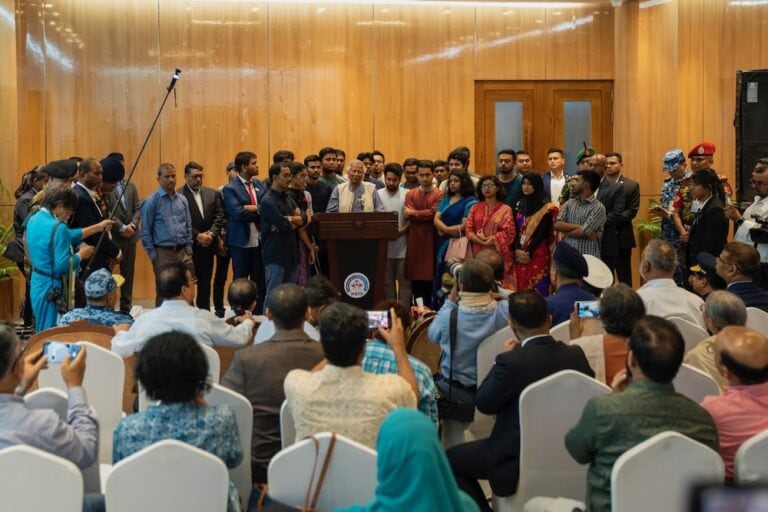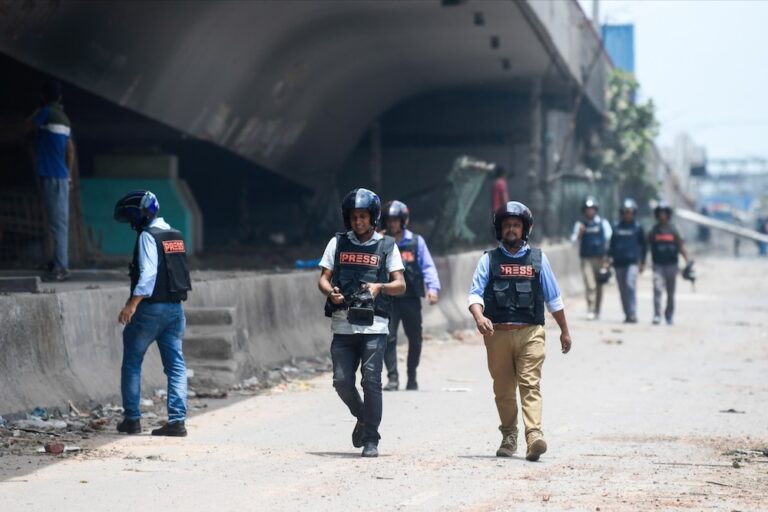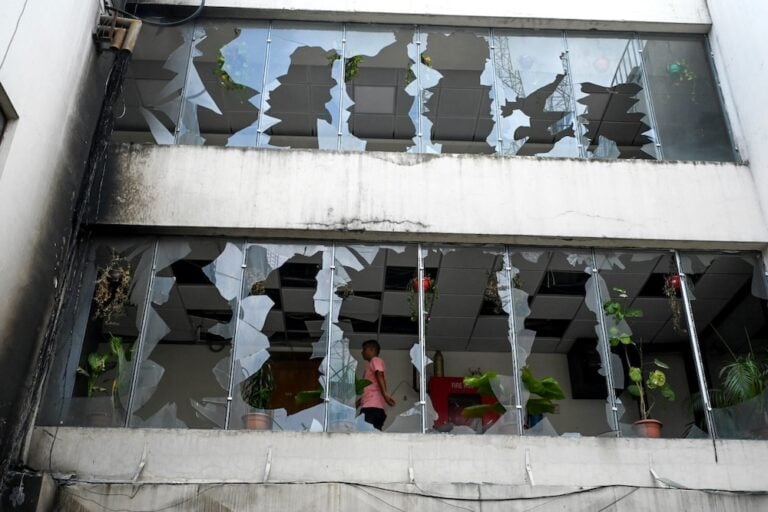(Media Watch/IFEX) – The following is a 23 July 2002 Media Watch press release: WORLD BANK’S OBSERVATIONS ON BANGLADESH MEDIA MEDIA WATCH: In a report on good governance in Bangladesh, the World Bank has observed, “The press’s effectiveness as agents of accountability towards ensuring good governance in the country is constrained by a number of […]
(Media Watch/IFEX) – The following is a 23 July 2002 Media Watch press release:
WORLD BANK’S OBSERVATIONS ON BANGLADESH MEDIA
MEDIA WATCH: In a report on good governance in Bangladesh, the World Bank has observed, “The press’s effectiveness as agents of accountability towards ensuring good governance in the country is constrained by a number of serious weaknesses.”
The Bank identified the weaknesses as: heavy dependence on public sector advertising, the weak rule of law, the bribing of journalists and poor training of journalists on investigative reporting.
As such, the World Bank suggested that improving the quality of journalism is essential to strengthening the role of the press as an agent of accountability.
The World Bank report said that newspapers’ profitability, even their existence, depends heavily on public sector advertising. The public sector is still the largest advertiser.
The report said that theoretically the circulation of a newspaper is supposed to determine the allocation of advertising. However, in practice, political orientation often becomes a decisive factor.
“If a publication is critical of the government, it may be quickly disciplined by the withdrawal or curtailing of state patronage. In contrast, a pro-government newspaper, irrespective of its circulation, can be sure of generous support,” the report noted.
However, the Bank pointed out that, fortunately for Bangladesh, two positive trends are at work. They include the emergence of businessmen sufficiently endowed to be able to bankroll newspapers and a steady growth in private sector advertising as a share of total advertising. The development strategy that calls for a withdrawal of government from business activities also serves to progressively limit this abuse, the Bank said.
While describing other weaknesses, the report said that in an environment marked by the weak rule of law, individual journalists and editors are easily threatened by politicians who control and may be willing to use thugs to further their ends. Strengthening the rule of law will help strengthen the role of the press.
Journalists are easily bribed, the report said, adding that some of them extort money by threatening to write unfavorable stories. “Although compared to other jobs with similar qualifications in Bangladesh, journalists are not significantly underpaid, ⦠in an environment where corruption is rife, they are, nonetheless, easily tempted to accept bribes or even extort payments,” the report stated.
The Bank observed that victims mostly have little chance of seeking redress through the courts, which in any event is costly. This is a weakness that may be diminished over time with the proliferation of newspapers competing vigorously for readership. Moreover, having a prolific press increases the cost for those who wish to bribe.
“Rising professionalism and strengthening the rule of law should eventually limit this abuse, but for the present journalists are able to make mischief with impunity for those unable or unwilling to use countervailing force,” the report said.
The report noted that journalists are poorly trained in the art of investigative reporting. They are generally deprived of opportunities to learn to better understand the matters on which they are asked to write.
In addition, investigative reporting depends on the willingness of newspapers to invest in the time journalists require to do a thorough job. Thus far, most newspapers have not been able to spend the money needed, the report commented.


